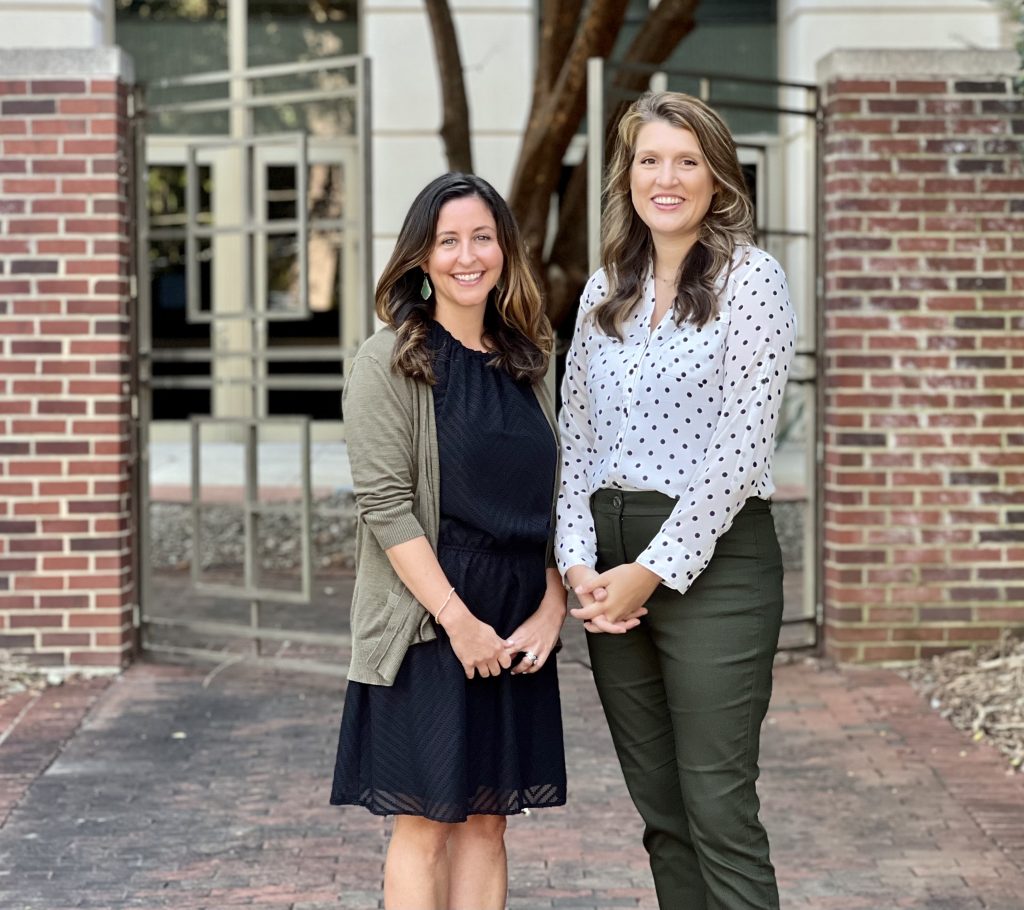UNC Cecil G. Sheps Center for Health Services Research and UNC School of Social Work are partnering over the next five years to lead a new federally funded Behavioral Health Workforce Research Center.
Funded by a $4.5 million grant from the national Health Resources and Services Administration (HRSA), the center will join a network of eight other federally funded centers across the country – including one already established at Sheps – that collect, analyze, and report data to help decision-makers at the federal, state, and local levels understand health workforce needs.
Moreover, this latest workforce research center will be the first within HRSA’s network of centers to be led by social workers. Brianna Lombardi, a 2018 Ph.D. graduate of the School of Social Work and current faculty in the Department of Family Medicine, will serve as principal investigator and director of the new center. Lombardi currently serves as the deputy director of the HRSA-funded Carolina Health Workforce Research Center, which has operated within Sheps for nearly 10 years. Lisa de Saxe Zerden, School of Social Work associate professor and director for Interprofessional Education and Practice, will serve as deputy director and co-investigator of the behavioral health project.
Zerden said she is especially proud that social work will be heavily involved in the new center and its focus of improving access nationwide by better understanding the behavioral health landscape.
“When we understand the workers who provide needed behavioral health services and treatment, we can better address the behavioral health crisis our country is facing,” said Zerden who also directs the UNC-PrimeCare program. This program trains MSW students to work in behavioral health within integrated settings, such as primary care clinics and schools.
Social workers are among the largest groups of behavioral health providers across the country and as such, “bring a unique lens” to the table, she added.
“As social workers, we recognize that understanding behavioral health also means thinking about where people live and understanding their communities, the context of their lives, the social determinants,” Zerden said. “So, we feel really uniquely positioned and proud to speak to these issues.”
The center is being established in the midst of an epidemic of opioid-related addiction, overdose and death and during a time when behavioral health needs nationwide have skyrocketed due to the stress of the COVID-19 pandemic. According to Mental Health America, nearly 50 million people or almost 20% of American adults have experienced a mental illness. Depression and anxiety among youth have been of significant concern with 15% experiencing a major depressive episode in the past year, and nearly one in three going without treatment.
Addressing these issues is not just about expanding the behavioral health workforce, Lombardi noted. “For us, access is not just, ‘Do we have enough workers?’” she said. It’s more like, ‘Do we have enough of the right people who have the skills and training needed and who are representative of the communities they serve?’”
During each year of the five-year grant, the research center team will work with other UNC campus partners, such as family medicine and psychiatry, to complete numerous studies within the behavioral health environment. These studies will address a wide variety of issues including the experiences of underrepresented minority providers, the educational pathways of diverse students into graduate social work programs, screenings for transitional age youth, adequate training for peer support providers and insurance payment and reimbursement for services.
“For example, we know that pediatrician and family medicine clinics are screening for depression and anxiety,” Lombardi said. “But who is actually conducting the screenings? Is it a nurse? Is it the physician? A social worker? We hope to learn more about who within the workforce is actually delivering the care and what’s the impact. Ultimately, we are going to dive in each year to understand a topic, with the goal of producing timely and policy-relevant work that can inform health and human services leaders and help them strengthen the workforce planning and educational training programs that they offer. This is about producing enough evidence to change policies.”
That UNC will be leading this timely work is important and exciting, Zerden added.
“It is meaningful work to enhance care and at the end of the day, we want to make sure people have the behavioral health treatment they need,” she said. “No one with behavioral health issues should be suffering. Knowing that the behavioral health center will be part of the solution to help produce needed evidence to facilitate that treatment and advance our understanding of the behavioral health workforce feels very rewarding.”


